Over the years I have photographed a fair amount of theatre works – opera, concerts, prose – but I have never really analysed what was happening while I was shooting, so I decided to collect some reflections on the subject, in no particular order.
Easy to shoot?
The picture used as ‘featured image’ for this post might look “ordinary” but for the fact that I shot it with a rangefinder film camera (guess which?) during the scene change between to acts of a theatre play. Scene assistants were placing the furnitures, actors were trying to focus on their parts, there was no time (and place) to design a proper composition and set the camera. No autofocus, no real-time exposure and white-balance setting.
Maybe I have been lucky capturing the match flame close to the cigar, maybe it was because of “muscle memory”, but I did it nonetheless. Problem is that I could not be sure if I succeeded until, one week later, I saw the contact sheet and the actual pictures. What if I missed (or messed) the shot? What was I supposed to tell the client?
This experience reminded me to use film cameras only for personal work and stay stuck to digital in every other case.
I know that many film photographers will harshly disagree because film photography has been – and still is – around, because if you are a “true photographer” you know how to properly shoot analog and so on. However, as much as I respect these point of view, I feel more comfortable on the side of pragmatism: digital is just faster, safer and more efficient than film.
Meaning in photography
In this picture, taken during the reportage I did for the Teatro Marrucino’s I Miserabili, an old and exhausted fighter rests while a young citoyen waves the French flag defying the fire of the royalists.
The strength of the picture is in the dialectics created by the two protagonists, hinting at a “relay” between an old man that “gave all”, resting while a young man steps in.
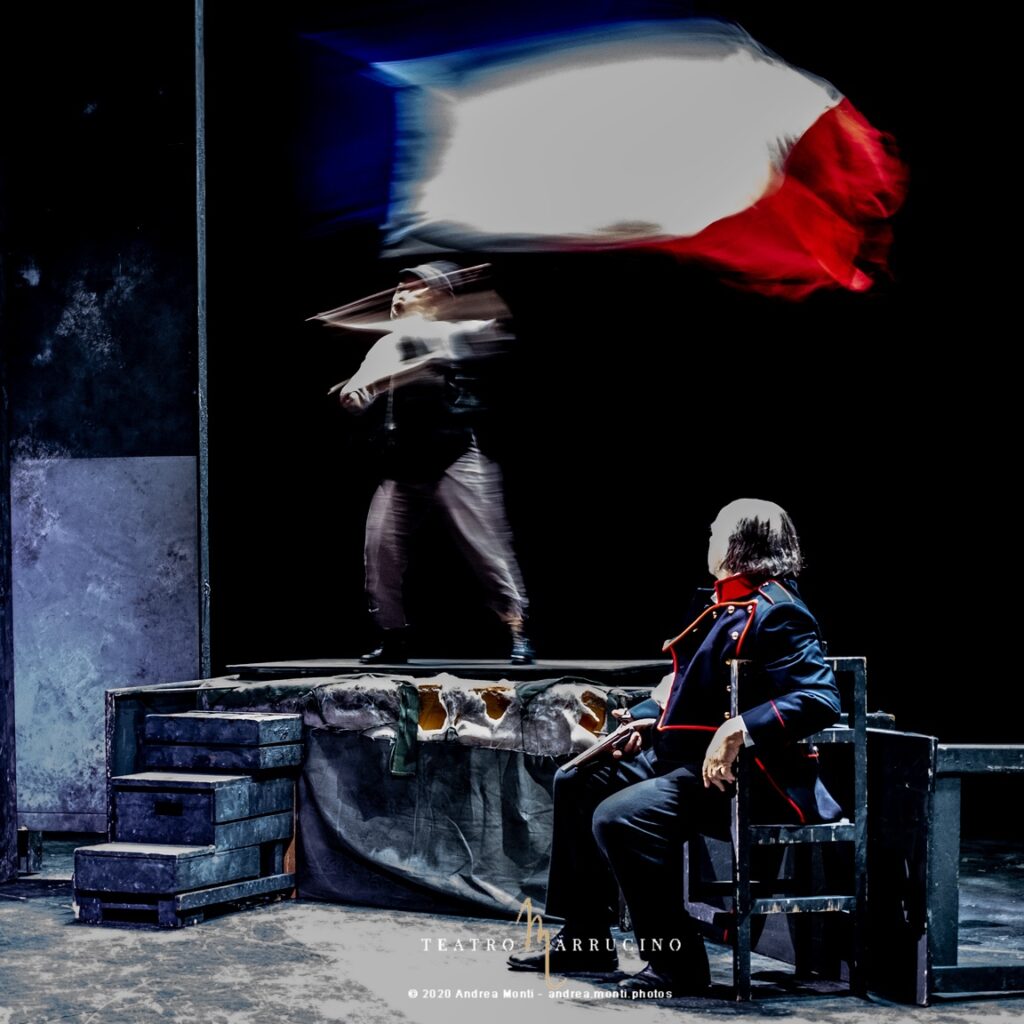
Denegata Justitia
Sometimes a picture acquires a meaning that goes beyond the original intent of the photographer.
In this case, taken from a reportage I did for Victor Hugo’s Les Miserables featured at Teatro Marrrucino, in Chieti, the photography becomes the archetype of the denegata Justitia.
The defendant asks to speak, the justice stares elsewhere.
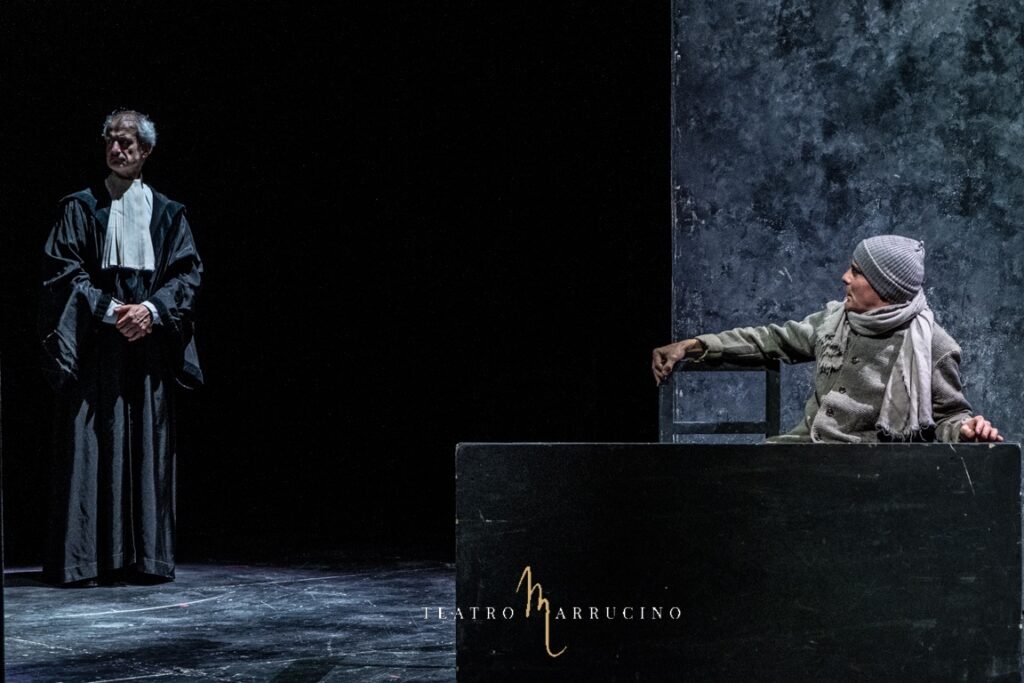
Breaking the Fourth Wall
Shooting a play is challenging because you must be ready to seize ‘the moment’ and, at the very same time, think of unusual compositions to avoid the boring ‘frontal’ perspective.
Shooting part of the reportage from the backstage of Hamlet, with Giorgio Pasotti and Mariangela D’Abbraccio directed by Francesco Tavassi I had the possibility to experiment the breaking of the fourth wall.
This picture is one of the results.
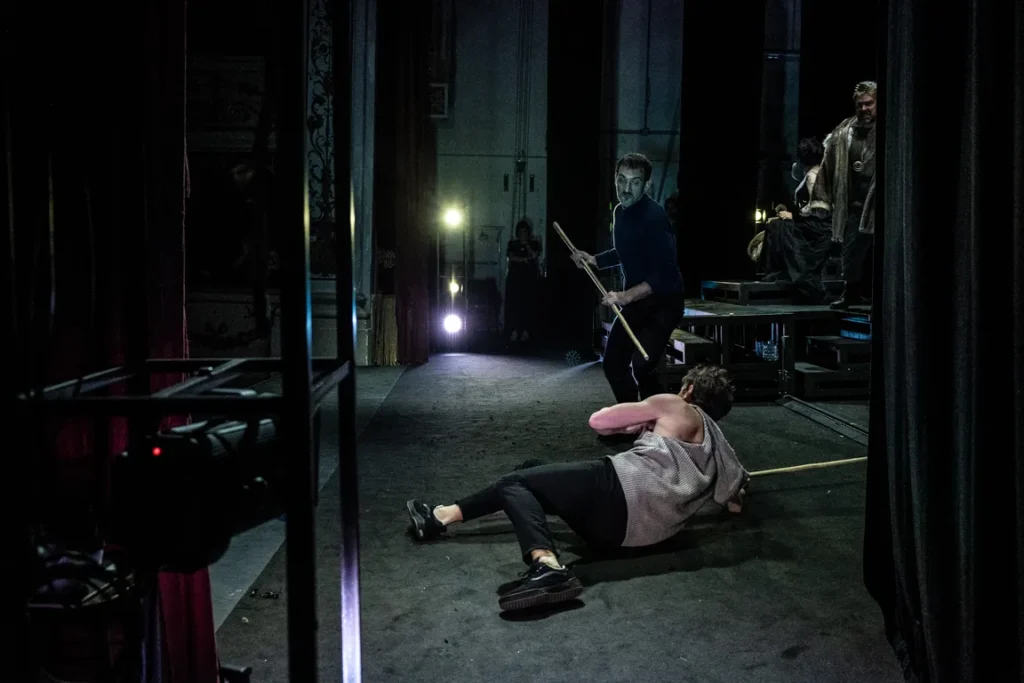
When Colour Helps Composition
This photo I took during a reportage of Miseria e nobiltà – a classic of the Neapolitan comedy by Eduardo Scarpetta – in the mise en scene of Lello Arena e Luciano Melchionna gives a lot of insights on how composition works.
The triangle designed by the two actors on the sides and the taller actress in the centre is reinforced by the colours of the costumes: black in the centre, white in the sides. Finally, the purple background behind the black figure enhances the eye-driving effect toward the centre.
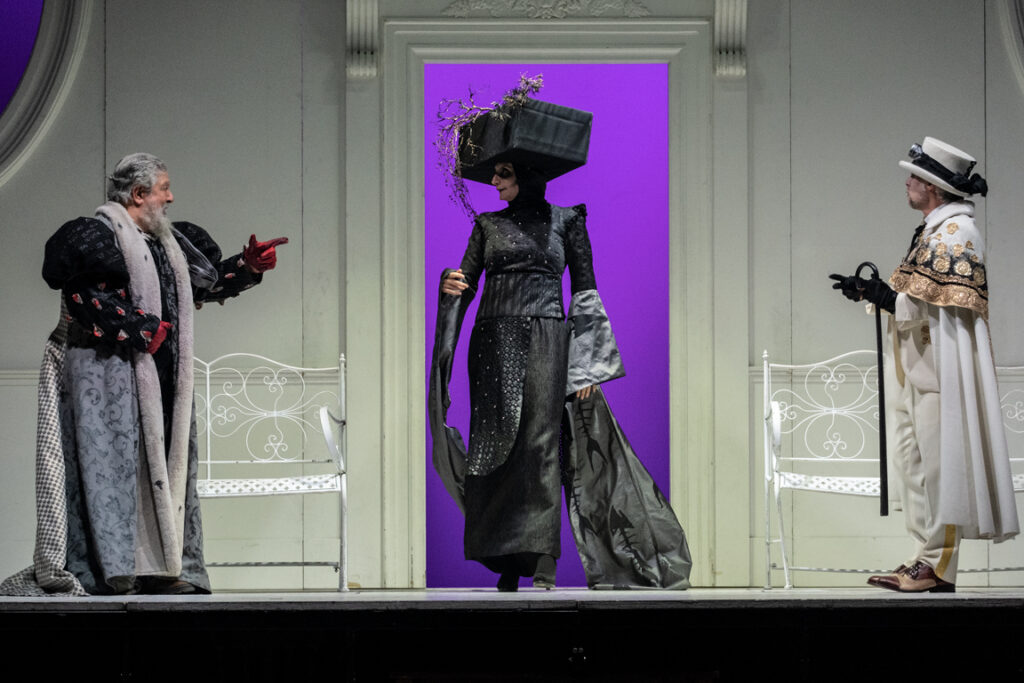
On Timing the Moment
This photo I took during an assignment for a reportage on the theatre drama called “Le Signorine” with Giuliana De Sio and Isa Danieli is an excellent example of the “Timing the moment” concept.
“Timing the moment” is a skill any event-based photographer should develop (or hone, if he’s gifted enough to have been born with the gift.)
Especially in sport – but too in concerts and theatre’s show if you did not attend the rehearsal – you don’t know in advance what is going to happen. A unique mixture of intuition, reflex and decision (what the Japanese would call 決め – kime) allows capturing an unforeseen – and excellent – “moment”.
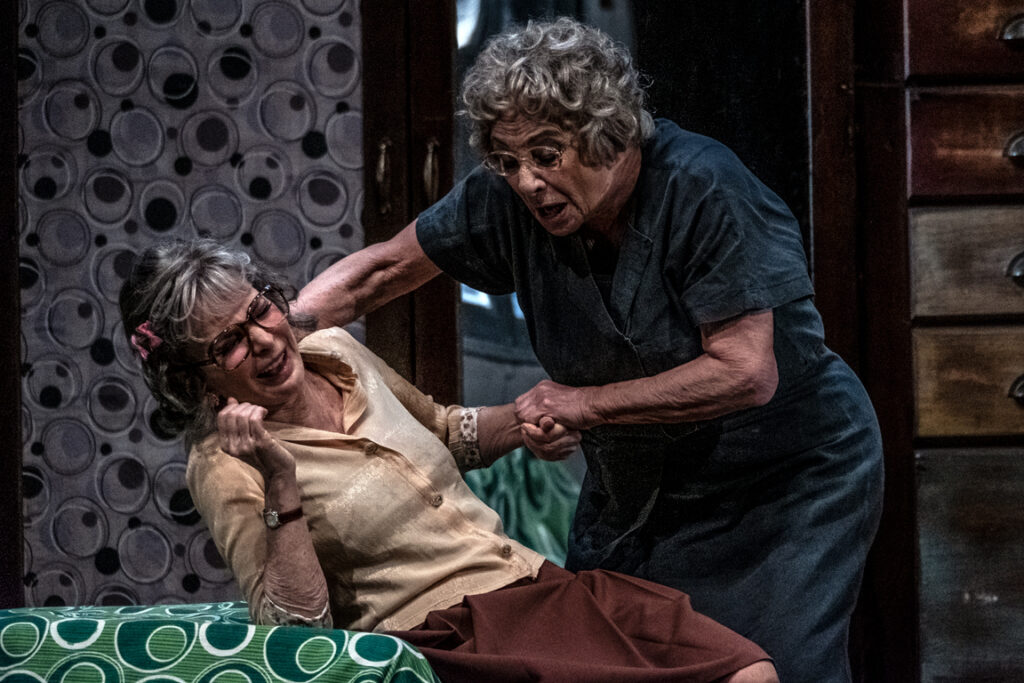
Summing Up
As I said, these pictures and the accompanying comments are in no particular order. They are intended to draw attention to individual issues rather than to form a coherent discourse.
Over time, I have lost interest in creating a structured architecture of knowledge (effective or not, that is a different horse altogether) that I have built up year after year, in favour of a more direct approach: get a solid grounding on photogprahy, develop solid camera and lens skills, go out and take pictures. Theory and reflection will follow. And if they don’t, that means you don’t need them (yet).
In fact, I have found that people often spend more time learning than doing, in the wait to shot the ‘perfect’ picture that, sadly, may never happen.
Share this post:

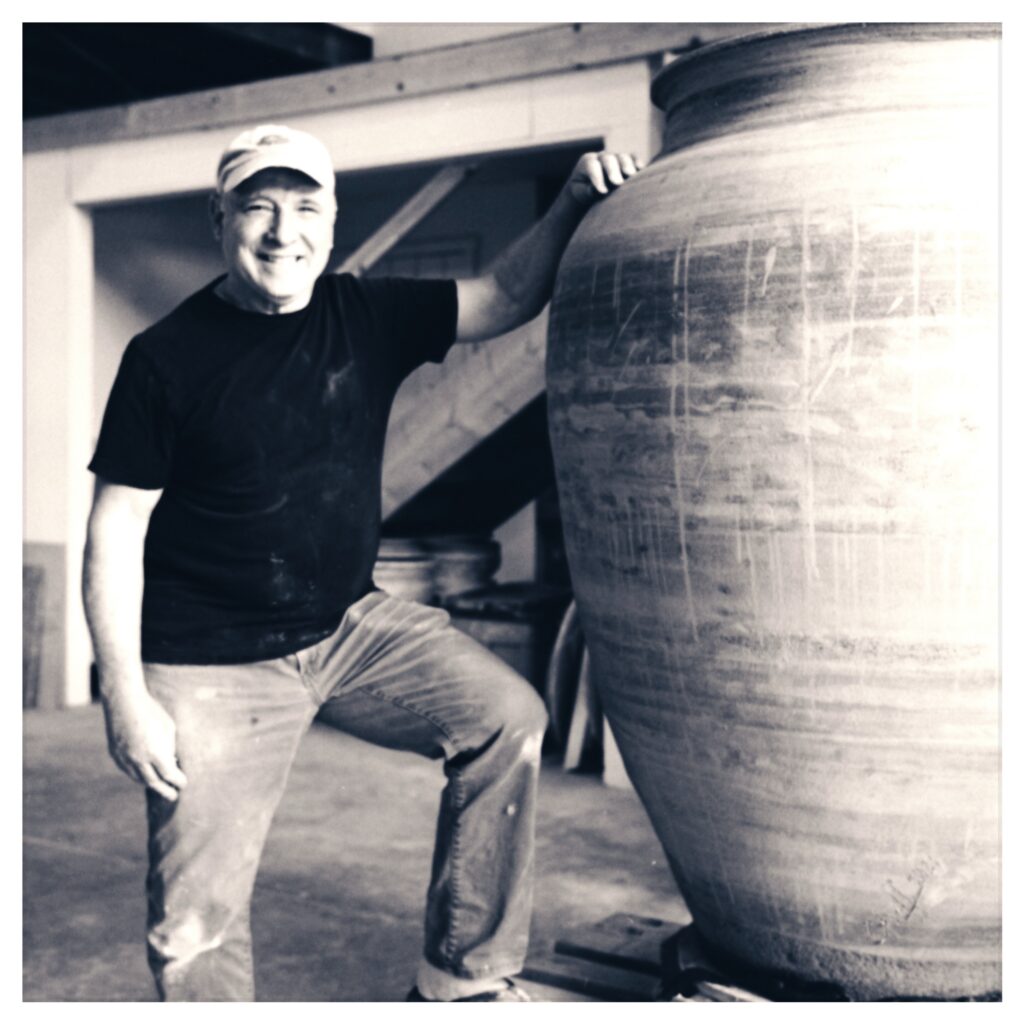
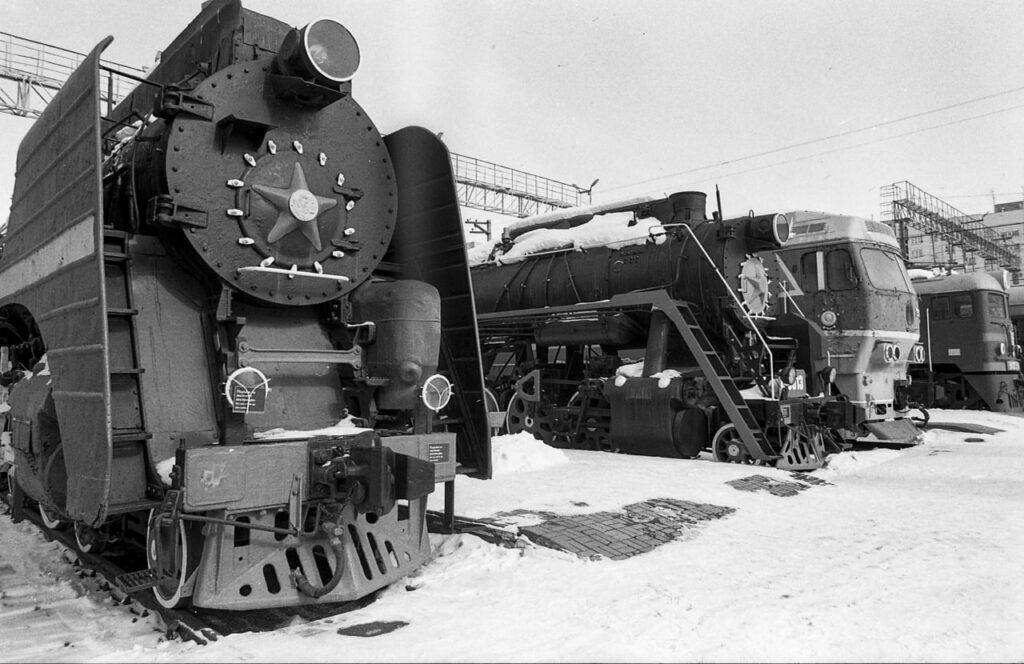
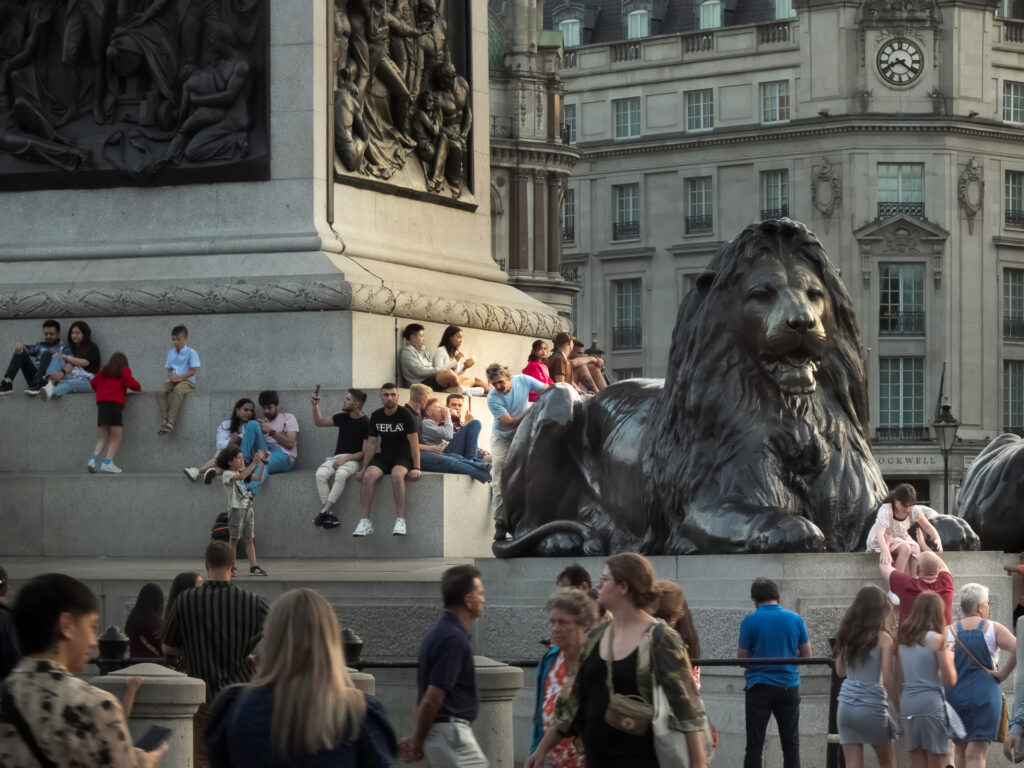
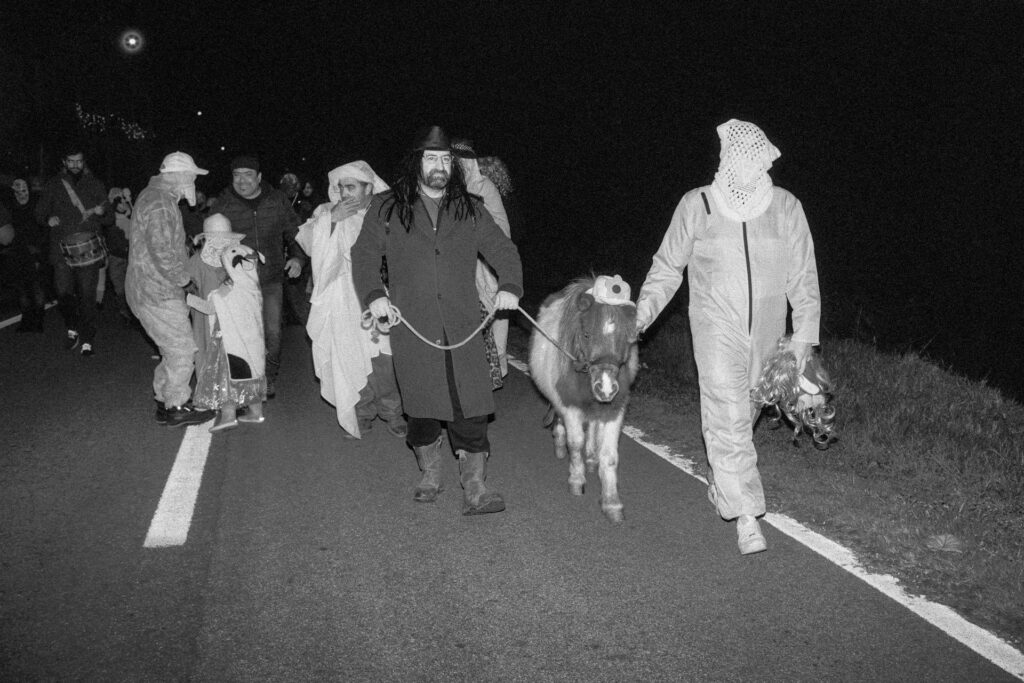




Comments
thorsten wulff on A Few Musing on Theatre Photography
Comment posted: 03/08/2024
Best from Thorsten.
https://thorstenwulff.com/karlsruhe
Comment posted: 03/08/2024
Stephen Barnett on A Few Musing on Theatre Photography
Comment posted: 03/08/2024
I always worked in the final dress rehearsal the evening before the plays opening so it was a long night in the darkroom developing the film and printing. The prints (20-16x20 and 30-8x10) had to be ready first thing the following morning to be displayed front of house and sent to the newspapers, so while I still love film I'd have loved using a digital camera even more!
Comment posted: 03/08/2024
Gary Smith on A Few Musing on Theatre Photography
Comment posted: 03/08/2024
Comment posted: 03/08/2024
Adam Brewer on A Few Musing on Theatre Photography
Comment posted: 04/08/2024
Julian Tanase on A Few Musing on Theatre Photography
Comment posted: 05/08/2024
Comment posted: 05/08/2024